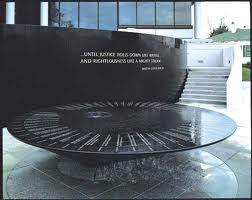 Written By: Ashleeann Washington
Written By: Ashleeann Washington
In a society where job stability is dying, unemployment is through the roof and the economy is dying, there’s no wonder why people are taking more precaution before entering into serious commitments.
It’s no surprise that the current economic situation in America has caused changes in the structure and maintenance of Black families, but could it be taking a toll on personal relationships between men and women?
Is chivalry dead within the Black community or has its image just changed? When someone mentions “chivalry” for many, the image of old fashion love comes to mind, the love shared between grandmothers and grandfathers; however, this image seems to have long gone within the past few decades.
Aside from today’s money matters, the liberated black women has played a huge role in the shift in views on chivalry. Today many black women are forced to take on the role as the head-of-house, providing for their families by working multiple jobs or accepting higher positions, causing the relationship between the black man and woman to be more strenuous.
In the last few decades the “independent woman” has become the common slogan and goal for black women everywhere, but independence can easily be mistaken for loneliness and loneliness can lead to the realization that today’s liberated woman is not same woman she was in the 1970’s. Today’s liberated women may have to make some personal sacrifices. The question is should chivalry be one of those sacrifices?
Should the women of today sacrifice old fashion chivalry in exchange for professional success? Over 75 percent of black women in professional fields have never been married. The chance of black women marrying lessens after each degree she receives and the statistics don’t get any better. In the search for who’s to blame for marriage decrease within black people many factors have to be taken into consideration including the power shift between men and women.
Give your opinion on the issue at Divine Covering’s program Bring Chivalry Back February 17, 2011 from 6 p.m.- 7 p.m. Come support and learn more about how the keep chivalry alive in your relationships. Refreshments will be served. Please bring a friend!


